If there were a Nobel Prize in biology, Marc Van Montagu would certainly have won it. Almost half a century ago, the Belgian molecular biologist pioneered the use of GMO technology or genetic modification. Together with his colleague Jeff Schell at the University of Ghent, Van Montagu discovered that the soil bacterium Agrobacterium tumefaciens, which was known to produce tumor growth in plants, has the ability to insert pieces of DNA into the genome of its host. In a series of papers starting in the early 1970s, the Ghent group of Van Montagu and Schell, in parallel with a research group in Seattle, succeeded in enlisting those so-called “plasmids” as a kind of genetic shuttle.
That discovery heralded the era of genetic engineering, offering endless potential applications: resistance to fungi and other pests, increased tolerance to drought or freezing temperatures, better adaptation to soil conditions, faster growth, production of specific vitamins or nutrients. Humans have been unwittingly modifying the DNA of domesticated plants and animals for millennia, but GMO technology is much more efficient and targeted. If classical breeding is like playing the genetic lottery, GMO is like homing in on your target with the precision of a laser beam. In 2013, Van Montagu was awarded the World Food Prize for his discovery – his partner-in-crime Jeff Schell had passed away ten years earlier.
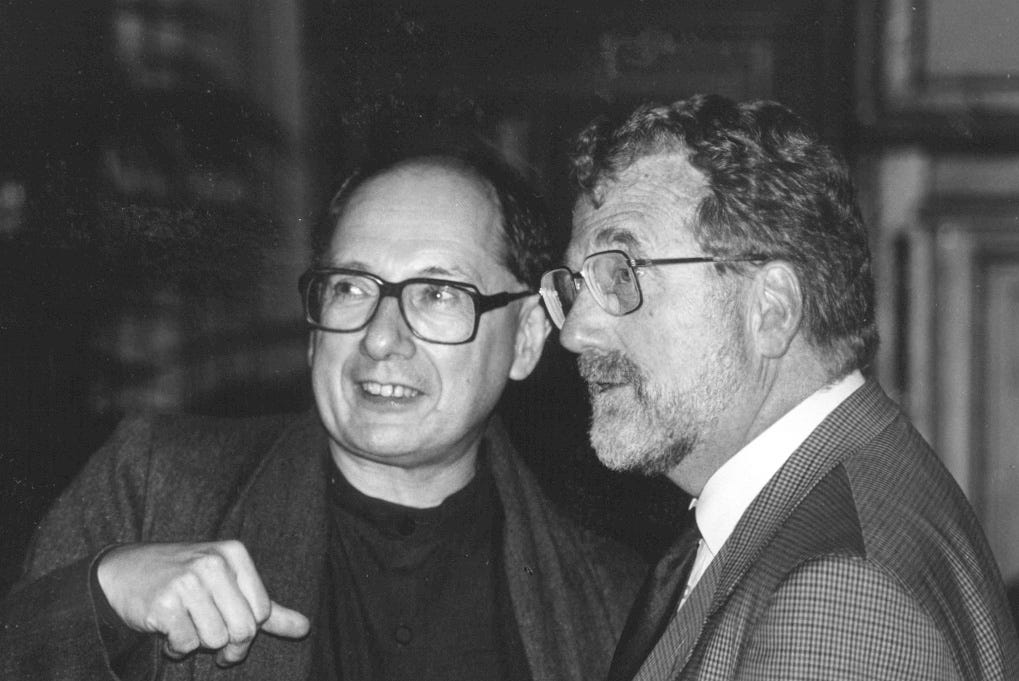
Last month, Marc celebrated his 90th birthday, and I got a chance to interview him about his legacy and about the role of biotech in human progress. Since his pioneering work on Agrobacterium tumefaciens, of course, biotechnology has taken great strides, chief among them the development of CRISPR-Cas in the early 2000s. With these revolutionary genetic scissors, you can directly cut and edit segments of plant genes without inserting any foreign DNA. As Marc himself freely acknowledges, CRISPR has a wider range of applications and is even more precise than his “old” technique of genetic modification. But at the cradle of the biotech revolution stood Van Montagu and Schell, and thanks to their pioneering work, the city of Ghent (where I live) remains a major hub in the world of biotech to this day, with the Flemish Institute for Biotechology at the center and numerous biotech companies orbiting around it.
Unfortunately the public opposition to GMO remains enormous, and for years Europe has had a de facto moratorium on any GMO food (the discussion about how to regulate CRISPR is still ongoing). Some day, hopefully, we will be able to convince Europe and the rest of the world that genetic modification is perfectly safe and brimming with promising applications.
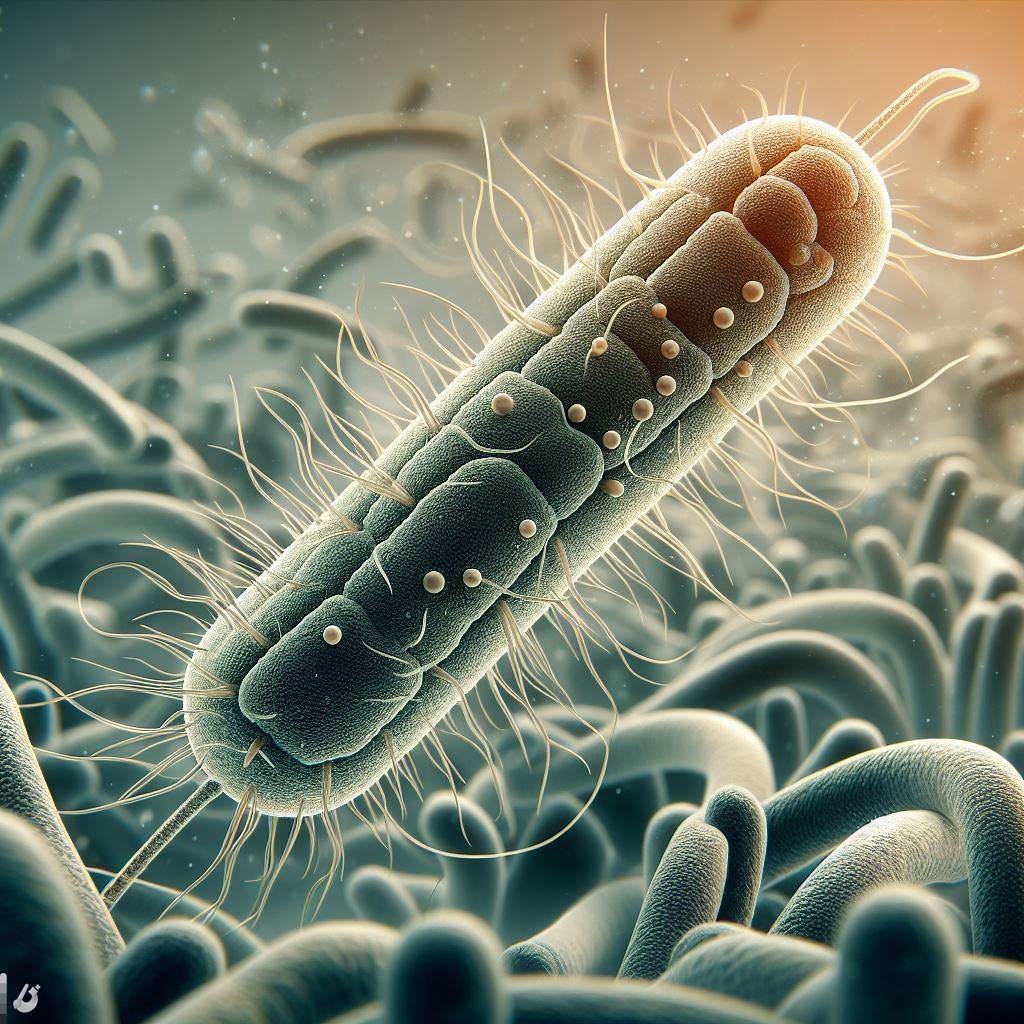
Why is it still so controversial to engineer living organisms today, more than half a century after your pioneering work? Why are bio-engineers having a harder time than ‘ordinary’ engineers?
When it comes to non-living matter, you can make a clear distinction between what is fact and what is fiction. You can’t argue with the laws of gravity: if you jump out of the window from the tenth floor, your chances of survival are pretty slim. But when it comes to living organisms, emotions are involved and people start creating taboos.
Mind you, today we accept a rational approach to inanimate nature, but remember that took a long time as well. Before Galileo developed his law of free fall under the influence of gravity, followers of Aristotle believed that a falling object accelerates because its natural resting place is on the ground. So if it falls down, it is happy, and therefore it will accelerate. It’s a poetic story, but has nothing to do with reality.
The ancient Greeks already knew a thing or two about heredity as well, your field of expertise. They understood there is some invisible essence residing in plants that determines their color, taste or shape, and that this essense is inherited to its offspring.
Indeed, farmers have been practicing crossbreeding and artificial selection for millennia, to adapt their crops to a specific region or soil. They were doing genetic modification, except they didn’t know anything about genes. When indigenous people in North America cultivated corn, which was originally from Mexico, they noticed that there are certain hereditary sequences that ‘jump around.’.For example, you get corn cobs that are speckled in different colors. Based on that color pattern, they could tell who owned which type of corn, and who had stolen something from someone else. In effect, they were performing genetic modification to create recognizable cultivars, which, for example, only the Cheyenne or the Apache were allowed to grow.
Today many people think they prefer “natural” food, even though the original ancestor of corn (teosinte) is small, hard and inedible, even toxic.
We should really abandon this notion that all artificial things are “dangerous” and therefore taboo. That’s not how human progress works. If with every step forward you think, “Watch out, that could be dangerous!” you’re not going to get anywhere at all. It’s the pinnacle of inactivity and stagnation. You always have to look at the probability that something is dangerous. Then you can say: well, let’s take a step forward and then see. Just always make sure you can retrace your steps if something goes wrong.
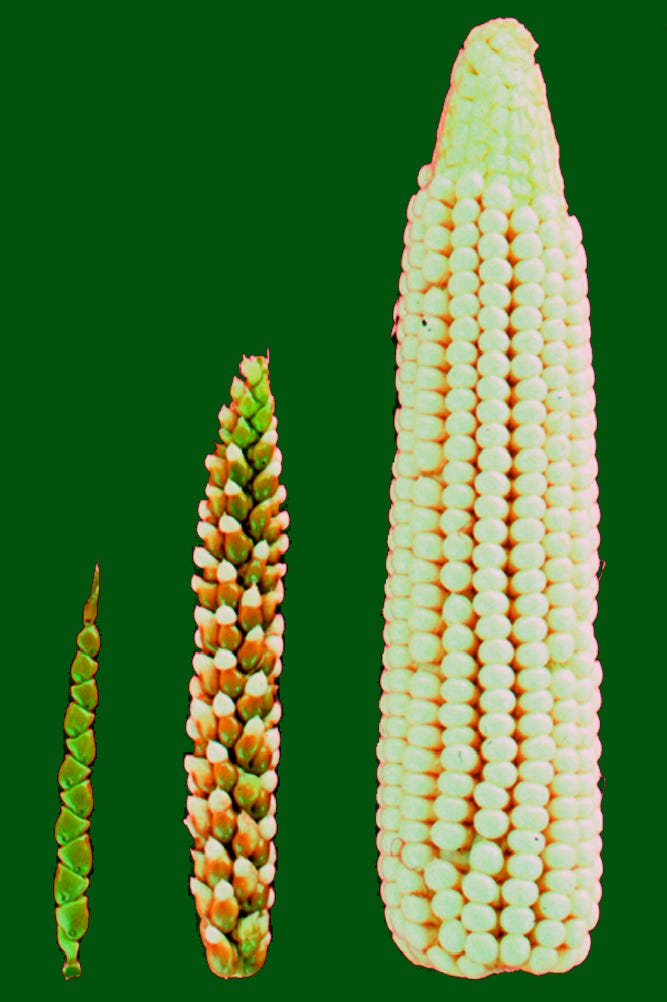
When my parents went to the city of Roubaix in northern France after the First World War, just across the border with Belgium, they saw something they had never seen before: strange apples with a deep red color. But then they took a bite and it turned out to be a tomato! As working-class people in rural Flanders, where most never left their neighborhood, tomatoes were considered a great luxury.
Everything that’s new requires effort and will arouse some resistance. Imagine what a horror the first train must have been! Surely these things would cause terrible accidents? And wouldn’t the high speed render women infertile? There’s a fascinating symbol, invented in many religious traditions, that we know as the Tree of Wisdom. If you dare to eat the forbidden fruit, you are doomed. Quite remarkable how people could already have sensed something like that thousands of years ago!
Where does this resistance to all things deemed “unnatural” come from?
Fifty years ago I saw a store in Paris advertising “natural” vitamin C, as opposed to synthetic. Now vitamin C is a relatively simple chemical formula that you can easily produce. It’s the same substance regardless: one from plant extraction, the other from the lab. A lot of products you can either derive from plants or synthesize. It’s simply absurd to say those two molecules are different, unless you believe that plants have some kind of magical power.

Or take homosexuality or transgenderism, which some people consider morally wrong because it is “unnatural”. But they have no idea what happens in nature! You know the clownfish, those striped fish that people keep in aquariums? Well, these fish colonize anemones in the Pacific Ocean. There’s only one female in the group, the largest one, while the others are males. But clownfish have the ability to change their sex, from male to female. So they are hermaphrodites, but serially, from one to the other. Now the dominant female constantly harasses the males, and as long as those males are experiencing stress, they remain male. Now, when that female dies, the most dominant male turns himself into a female and “she” takes over. And then people worry that human sexuality is “unnatural” (laughs)!

When the first electric refrigerators entered the market, people were also afraid of them because the ice was ‘chemical’ and thus ‘unnatural’. Natural ice from glaciers or packed snow would be much healthier! But over time, refrigerators became commonplace and the fear completely disappeared. Should that story make us optimistic about the acceptance of GMOs in the long run?
My father-in-law, who was from Moldavia, taught me that “iceman” used to be a real profession. During winter months, large packs of snow were kept and stored underground until the next season. People saved up to buy such a luxury product, and someone turned it into a profession.
We usually accept what we know from our daily lives. For us scientists, the great challenge is to unify the anecdotal and the theoretical. When scientists get too caught up in their own abstruse theories and difficult jargon, people drop out. But GMOs work better than the alternatives, and they do, they will be used eventually.
Your opponents have another argument up their sleeves: Why should we impose our Western agricultural practices on the rest of the world? Why should everyone use Haber-Bosch-produced fertilizer, big fossil-fueled tractors and GMO tech? Let small farmers in the South use their own methods, or so the argument goes.
That’s how slaveholders used to talk about slaves: ‘They have their own culture, they will survive.’ If you go down that road, what you’re actually saying is ‘I am rich, but you don’t need all that prosperity. Mere subsistence is good enough for you.’ It’s the same colonial mindset all over again. These anti-GMO activists may start from well-meaning sentiments, namely empathy and solidarity, but they arrive at completely abhorrent conclusions.
You’ve grown up in a poor working-class family and were politically active with the socialists for a long time, already in your student years. In those days, being on the Left meant being in favor of material prosperity and abundance for all. Why is it that today leftists, of all people, romanticize small subsistence farmers?
As soon as essential material needs are met in a society, people take this progress for granted and forget that things were ever different. Nobody remembers the misery that once existed but no longer does.
Look, food is a basic human need. If you are poor, you spend about 80% of your disposable income on feeding yourself and your children. So there’s almost nothing left to spend on other things. There’s this booklet, Travels Through Poor Flanders, which describes how our grandparents lived here in the countryside a century ago, in straw huts. You had a few steam trams in some cities, but most places were only accessible on foot. The roads weren’t even suitable for cars, even if people had had them. Our Western society has already achieved so much. When you see the yawning gap between Africa and Europe, you want to fix that, don’t you? You want to give people opportunities to work their way up, right?
Some people fear that, if everyone adopts our Western consumption patterns, we will lose valuable cultural diversity.
Not everyone should adopt our western culture. I’ve always been fascinated by cultural diversity, just like biodiversity in nature. Dance, music, rituals – these are unique cultural inventions that sometimes do not exist anywhere else. But we should realize that the argument about cultural diversity is merely a rationalization that opponents of modern agriculture fall back on.
Their objections also seem to change over time. Not so long ago opponents said that GMOs could be toxic or carcinogenic. Later they invoked the possibility of ecological disasters. Now they are mostly focused on economic harms.
Indeed, but we would all be better off if they remembered that they once used those old and refuted arguments, and then reflected on the value of their current arguments.
As for the economic worries, it is true that GMOs were immediately bought up by agrochemical multinationals like Monsanto, simply because there’s a lot of money to be made from them. That’s just the nature of our economic systems.
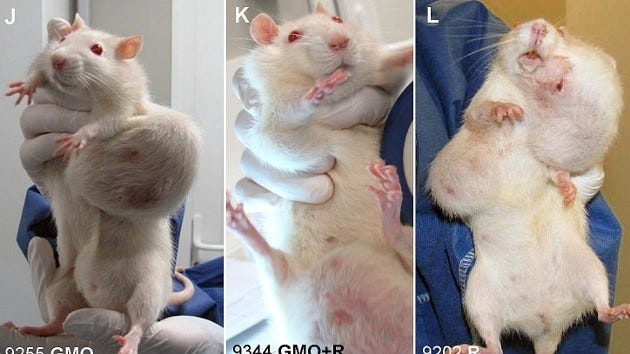
Can GMOs contribute to global food security?
Better still, I am absolutely convinced that GMOs can eliminate hunger from the world. We can create countless varieties of crops and vegetables that are adapted to the local soil and region, giving a much higher yield or better nutritional value. GMOs can also improve pest control by making plants resistant to all kinds of diseases and parasites. No chemical pesticides needed anymore.
You’re one of the pioneers of a technology that you believe can solve world hunger, and yet is widely opposed and even banned. If I were in your shoes, I would be extremely frustrated.
I definitely feel a sense of frustration, but not just about GMOs. There are many other useful technologies that could help to make a better world, but whose potential remains untapped. If agricultural scientists were to receive more research funding, we could, for example, make spectrum analyses of every type of soil and process that data with Artificial Intelligence, so that we can add nutrients and water in a much more targeted manner. Only now are scientists beginning to understand the ecology of soil bacteria. And yet every time you run up against strong taboos: “It’s always been like that, we don’t want change!” I find that horrible.
Do you think Europe will miss the boat? Does the future of GMOs lie in other parts of the world, such as Asia or Africa?
Much technological progress in the world is still coming from Europe, because freedom of thought and inquiry still prevail here. Even in the U.S. there’s much more pressure from those in power, as well as from syndicates and big corporations.
But in Europe, agriculture is increasingly becoming a dead weight to our society. Just look at the subsidies to support our ‘GMO-free’ agriculture. It’s about 40% or 50% of the total EU budget. Every sensible politician realizes that this is abnormal.
In my opinion, genetic modification will not achieve its breakthrough in the form of food, but as a useful tool in the chemical industry, for example as an energy source to make plastic and replace petroleum. Starting from potato starch, cellulose, you can make derivatives that have the properties of plastic, but are completely biodegradable. And there will be demand for this in our society.
Perhaps people will also be less resistant because they don’t have to eat it. I read that 95% of all cotton worldwide is genetically modified (BT cotton), making use of the technology you developed.
Yes, all the banknotes in our wallet are GMO, because of the cotton in them.
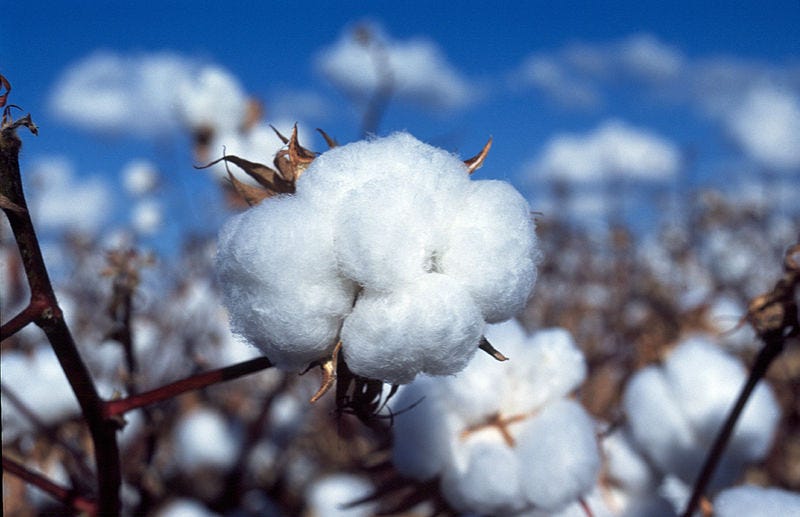
You also believe that GMOs can contribute to nature conservation and biodiversity, how exactly?
There will always be species extinctions, that also happened during the Ice Ages, but today such extinctions are mainly caused by deforestation, so by us. That’s why we must support developing countries to protect rainforest, to fund park rangers and police, to fight poachers and gangster groups that are destroying rare plants and animals.
What then is the role of GMOs? Well, if a farmer grows the same crop with GMO, he can triple his yield. Or produce the same yield on a third of the land, which means less forest to cut down. It’s scandalous that something like this hasn’t happened yet. The collapse of ecosystems we’re seeing now is tightly linked to the blocking of genetic modification.
People across the world will have to behave more as a society, because ultimately we all share the same planet. Poetry about the beauty and grandeur of nature can be found in all cultures. I believe that can connect us and reduce enmity between peoples. If you can do that, you are one step closer to peace in the world.
(Originally published on my Substack, you can subscribe below)